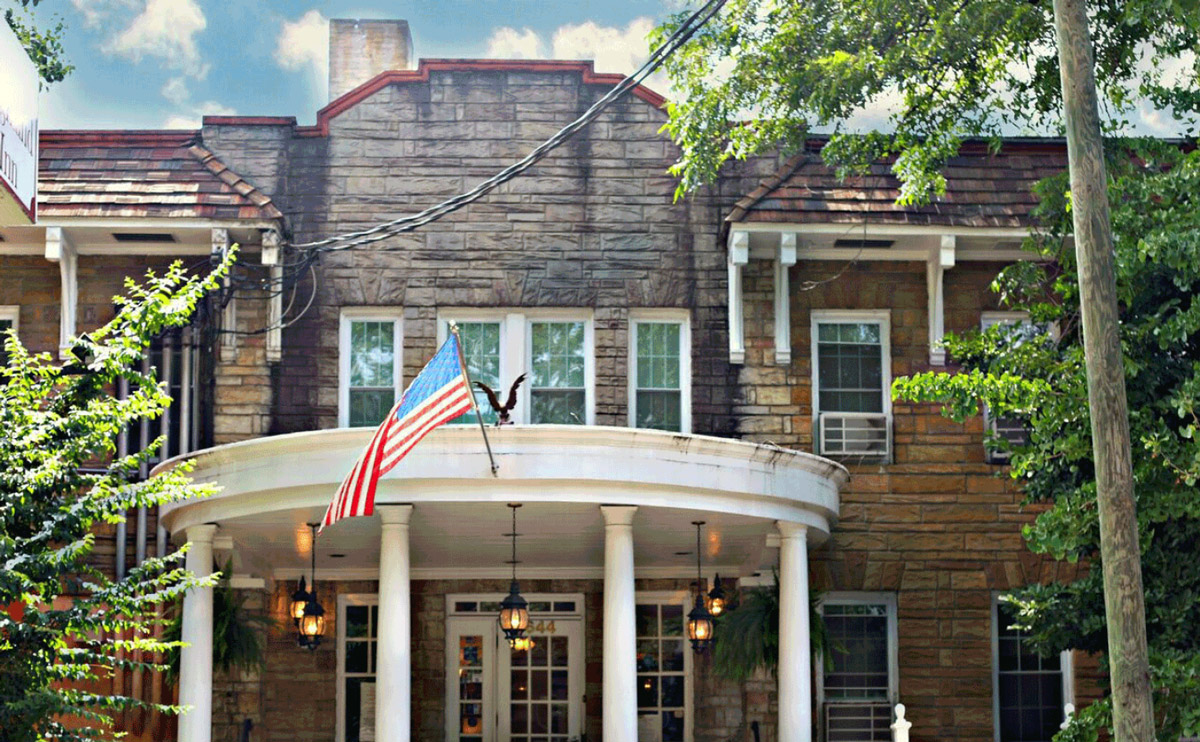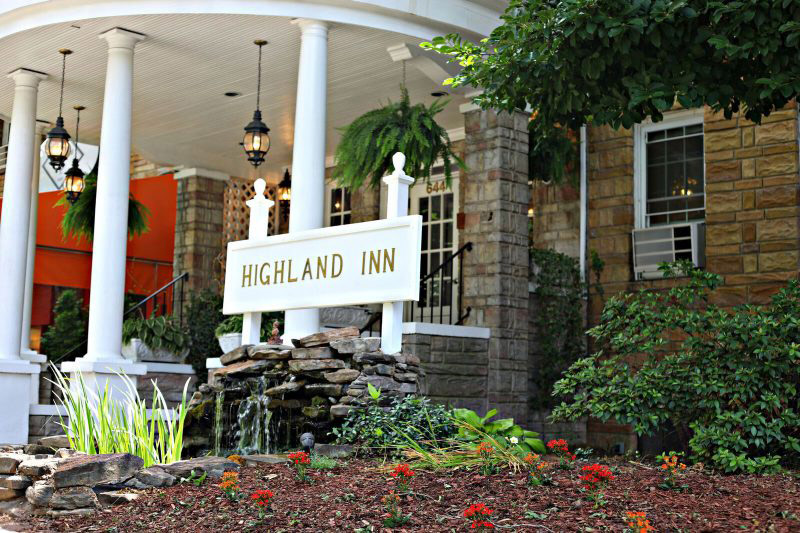
Photograph courtesy of Highland Inn
The historic Highland Inn isn’t going anywhere. Not any time soon, at least.
Last week, What Now Atlanta published a couple of stories indicating the nearly century-old hotel on Poncey-Highland’s North Highland Avenue seemed all but doomed to be demolished and replaced with a new mixed-use development, sending folks in the city’s historic preservation circles into fits of worry.
But the wrecking ball isn’t actually bound for the Highland Inn. Getting a demo crew to converge on the old site is much easier said than done. And, besides, the owner of the property, who recently filed an application for a demolition permit with the City of Atlanta, is not hell-bent on razing the place, his attorney told Atlanta magazine. Rather, he just wants to weigh his options as the building ages and withers and the coronavirus pandemic wreaks havoc on the hospitality industry.

Photograph courtesy of Highland Inn
“Right now, the Highland Inn faces significant challenges due to its aged condition and the continued effects of the COVID-19 pandemic on hotels and the hospitality industry,” said Williams Teusink attorney David Metzger, who represents property owner Thomas Carmichael. “In a challenging situation, it is important to see what options are available. Accordingly, we submitted the application to see if demolition and redevelopment is an option to be considered.”
Metzger added that the property is not under contract “and we are not currently involved with a developer or buyer.” Additionally, officials with the city’s planning department told Atlanta there are no plans on the books for any new development to replace the inn. Plus, even if some real estate giant wanted to plop down the next swanky mixed-use colossus where the historic building now stands, they’d face some serious roadblocks.
In March, as concerns of the public health crisis began to ramp up, Poncey-Highland residents elected to establish the Poncey-Highland Historic District, a designation that would help protect older buildings in the neighborhood, install policies that would provide flexibility when rehabbing dated architecture, and offer some say to neighbors when new developments are proposed. (Highland Inn owner Carmichael lobbied against the adoption of the district, noting it could spike the cost of renovations and, in effect, rent at his other, neighboring properties.)
COVID-19, however, put the finishing touches of the historic district in limbo, Atlanta planning commissioner Tim Keane said in an interview. “This [historic district] would probably be finished, if not for the pandemic,” he said. The proposal still needs to go before the planning department’s Zoning Review Board, and then the Atlanta City Council, and then Mayor Keisha Lance Bottoms.
The Zoning Review Board is slated to address the matter on August 13, according to Doug Young, the city’s assistant director of historic preservation and executive director of its Urban Design Commission. But officials can’t move forward with Carmichael’s demolition application until the Urban Design Commission weighs in on the issue.
And the kicker: The demo permit is subject to the protective regulations of the proposed historic district during what Young and Keane call the “interim control process,” meaning, while the district is under consideration by city officials, its terms are essentially in full effect.

Photograph courtesy of Highland Inn
For historic preservationists, the passage of this new historic district is crucial to protecting places like the Highland Inn. “This designation is the only tool we have to save this building,” Keane said. So, if the historic district proposal is somehow stunted by the Zoning Review Board, the council, or the mayor, and the planning department’s Urban Design Commission signs off on leveling the inn, the effort to preserve it could falter. But that’s all unlikely.
The Highland Inn, of course, is far from the only historic Atlanta property whose life hinges on protections from pro-preservation officials and measures at City Hall. And planning department leaders say they’ll fight to keep as many old, important structures as possible. “These buildings themselves are really vehicles to understanding the city’s history,” Young said. “These neighborhoods and [architecture] are the DNA and the essence of our communities’ fabric.”
David Mitchell, director of operations for the Atlanta Preservation Center, said his organization is “very excited about the [Highland Inn] going through a renaissance and reactivation,” adding, “You have to be dynamic and creative and be more thoughtful about adaptive reuse in a way that can both preserve the space and promote economic growth. We want preservation to provide occupation.”
And Young and Keane aren’t just dead-set on preservation for the sake of preservation; they know that a diversity of design provides for lasting affordability, vibrancy, and accessibility in Atlanta’s fast-evolving landscape. “The Highland Inn is just the latest discussion of preservations that’s been instrumental to that effort,” Keane said. “We still have a lot of old buildings to save.”













